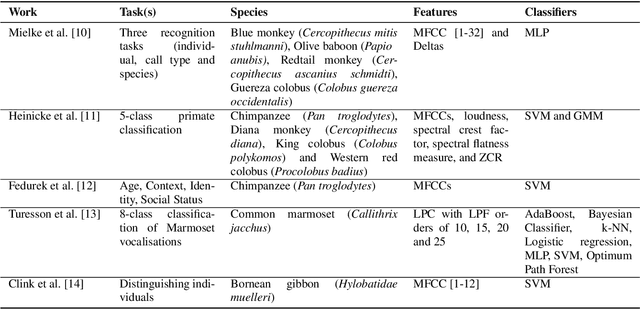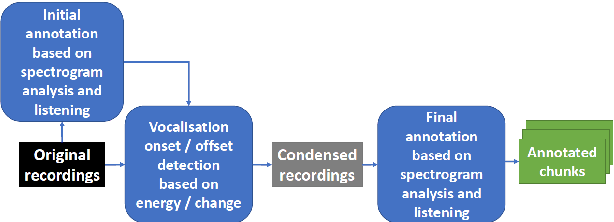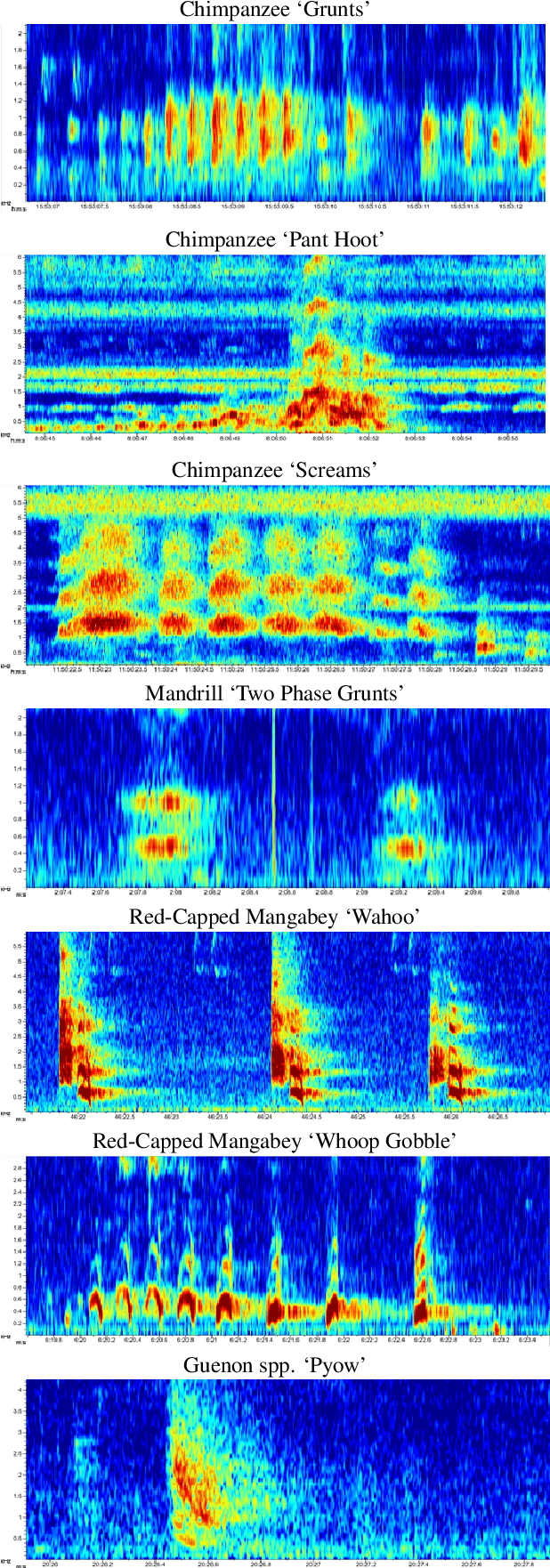Joeri A. Zwerts
Introducing a Central African Primate Vocalisation Dataset for Automated Species Classification
Jan 25, 2021



Abstract:Automated classification of animal vocalisations is a potentially powerful wildlife monitoring tool. Training robust classifiers requires sizable annotated datasets, which are not easily recorded in the wild. To circumvent this problem, we recorded four primate species under semi-natural conditions in a wildlife sanctuary in Cameroon with the objective to train a classifier capable of detecting species in the wild. Here, we introduce the collected dataset, describe our approach and initial results of classifier development. To increase the efficiency of the annotation process, we condensed the recordings with an energy/change based automatic vocalisation detection. Segmenting the annotated chunks into training, validation and test sets, initial results reveal up to 82% unweighted average recall (UAR) test set performance in four-class primate species classification.
 Add to Chrome
Add to Chrome Add to Firefox
Add to Firefox Add to Edge
Add to Edge